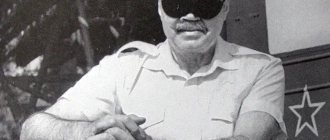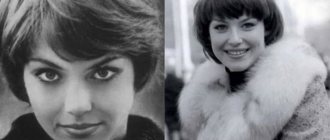Oscar Wilde - biography
Oscar Wilde is an Irish writer, a multifaceted representative of the literary art of the late Victorian period.
Many call his work the starting point for the development of all European modernism. He was one of the most prominent representatives of aestheticism.
In addition to working in the field of prose literature, Oscar Wilde worked actively and productively as a poet, writing plays, essays, and also engaged in small literary forms.
At one time, he was considered an intelligent, insightful and talented writer, prose writer and poet beyond his years. At the same time, he was distinguished by a complex character, had a good sense of humor and a healthy dose of self-irony.
Despite his talent bordering on genius, Oscar Wilde experienced serious personal problems almost throughout his life.
By coincidence, his preferences in the love sphere became fatal. First, the poet and writer went to prison on charges of homosexuality.
And after his imprisonment, due to poor health, he fell ill with an infection, which led to meningitis, inflammation of the brain. And ultimately, it took the man’s life.
The talented writer and poet lived only 46 years. He died in 1900, but managed to leave behind a rich and varied literary heritage, which enjoys deserved popularity even today.
Content
Oscar Wilde: interesting facts
20.06.2017
Sir Oscar Fingal O'Flaherty Wills Wilde became an example of how fate can first lift a person to dizzying heights, and then throw him to the very bottom, from where it is no longer possible to rise. However, Wilde was not an angel in the flesh, and the vicissitudes of his life were largely explained by his own extravagant behavior. He literally threw down the gauntlet to his contemporaries - so how could they not pick it up? So, let's remember some interesting facts from the biography of Oscar Wilde - this will make it easier for us to understand his works.
- Oscar was born into a respectable family, both of his parents were respected by others. His father was a practicing ophthalmologist. Mother was fond of writing poetry, loved to shine at literary evenings, and had a craving for everything refined and beautiful.
- When Oscar was very little, his mother dressed him like a girl, curled his hair - she passionately dreamed of a daughter. Her dream came true later. Unfortunately, Oscar's sister did not live long. For Oscar himself, his mother’s strange whim had sad consequences: perhaps it was the reason for his incomprehensible attraction to people of the same sex in his mature years.
- The boy grew up and studied with his brothers at first at home (during this time he mastered German and French). Then he entered school, where he amazed teachers and peers with his phenomenal speed of reading aloud. He read with expression, showing obvious acting abilities.
- Wilde completed his education at Oxford, where he graduated brilliantly. There he learned to speak excellent English, and no one could accuse him of having an Irish accent.
- After Oxford, Oscar began to write poetry that showed decadent traits. Gloominess and hopelessness are characteristic of his work. The young writer despised the “vulgar 19th century” - with its mercenaryism and passion for profit. But did he offer anything in return? There is no mention of this in his works.
- From school, the young dandy immediately finds himself in secular salons, where they, as the hosts of the evenings put it then, “treated” the guests. The “Irish wit” in original costumes was a rare novelty - they should have been “regarded” to representatives of high society.
- Oscar Wilde had no shortage of admirers and admirers. Among the latter was the beautiful Constance, for whom a large dowry was given. Oscar fell passionately in love and soon led his chosen one to the altar. The marriage produced 2 children.
- After some time, those around him began to notice oddities in the writer’s behavior: taking advantage of the increased attention of people of both sexes of the younger generation, he himself began to be interested in young men. One day he met Alfred Douglas. The scandalous relationship came to light. The writer was accused of having shocking connections to the public. Oscar Wilde sued, thinking that he could defend himself with his eloquence. The process dragged on for a long time. The result - Oscar Wilde was sentenced to hard labor for a period of 2 years.
- The poet and writer found himself plunged into conditions that he had previously only read about or heard about from others. As he himself will say after leaving prison: “Everything that I had deliberately avoided earlier, pretending that suffering, pain and horror did not exist, fell upon me.” Life seemed to punish the writer for the fact that in the past he did not recognize its dark sides - and decided to turn its sharpest edges towards him.
- After his imprisonment, Oscar Wilde broke down. He came to terms with his suffering. Close people left him: his wife died, his children had a different last name, his friends turned away. Alfred Douglas showed his true colors: he spoke with contempt about Wilde and “quietly” sold off the things that his friend gave him in his happy time. But Wilde did not change himself: until his death from acute meningitis, he continued to write. His latest work is The Ballad of Reading Gaol. There are no more beauties or aesthetics here - only true grief and pain...
The life of Oscar Wilde, the author of the world famous “The Picture of Dorian Gray,” turned out to be so complex and unpredictable. Fate sent true talent bitter trials, as if testing his strength.
Article rating:
7641
views
Author: Irina Burdakova
Childhood
The future writer Oscar Wilde (full name Oscar Fingal O'Flaherty Willis Wilde) was born on October 16, 1854. The birthplace of the prose writer and poet was the Irish city of Dublin. He came from a noble, respected family.
His father, William Wilde, was a doctor who specialized in the surgical treatment of diseases of the eyes and ears (oto-ophthalmologist).
In addition to his medical activities, the man was versatile and gifted. He wrote books on Irish folklore and archaeology.
He was also involved in charitable activities, as befits an aristocratic person. At one time, William opened a medical center that helped the poor.
Oscar's mother, Jane Wilde, was a poetess and a staunch nationalist until the very last day of her life. She helped the Irish liberation movement. She worked under the pseudonym Speranza (translated from Italian as hope).
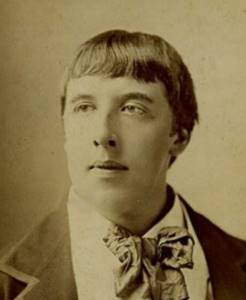
Oscar Wilde in his youth
Throughout his childhood, young Oscar Wilde was in a creative atmosphere. My mother often organized poetry evenings and invited guests to whom she read her works and poems by members of the nationalist organization “Young Irish.”
The creative couple's friends and acquaintances were major representatives of cultural society, science, and high society.
It was thanks to this rhythm of life and the atmosphere at home that Oscar Wilde began to emerge as an independent and extraordinary personality.
Family
- The poet's father was a skilled and quite famous ophthalmologist who was involved in charity work. He established a medical center, serving the poor free of charge. He also had significant achievements in the fields of archaeology, history and drinking. He received a knighthood for his activities.
- Oscar's mother was a poet herself, but not as famous as her son; she usually wrote poetry under the pseudonym "Speranza" (Italian for "Hope"), supporting supporters of Northern Ireland's secession from Great Britain. It was she who passed on to the future writer a love of culture and art from an early age.
- When Wilde was little, his mother dressed him in women's clothes and curled his hair because she really wanted to have a daughter. Subsequently, her dream came true, her daughter was born, but she did not live long. Little Izola died of meningitis at the age of ten. Oscar dedicated one of his poems to his younger sister, entitled “Rest in Peace.”
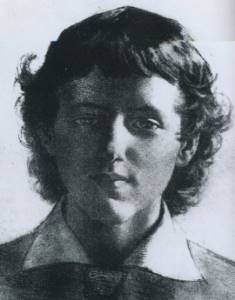
Youth and education
At the initial stage of his formation, Oscar Wilde mastered knowledge at home. Parents were supporters of individual education. They adhered to the same principle in the development, education and training of two other children.
The young man had a brother named Willie and a sister named Isola. Life didn't give her much time. At the age of 10, the girl died from inflammation of the brain, meningitis.
The young man’s education was handled by two governesses hired by the parents of the future writer.
The Frenchwoman instilled a love for the literature of her country, its culture, and also helped her master the French language. In the same way, the German woman influenced the impressionable and thirsty young man.
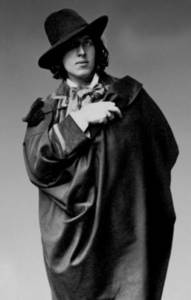
In 1864, the parents decided to send the brothers to the prestigious Royal School of Portora, which was located not far from Dublin itself.
Oscar Wilde was a witty and original young man who was easy to talk to. These traits, coupled with an excellent sense of humor, made him the life of any company. He easily found a common language with his peers and teachers.
At the age of 17, the young man graduated from the Royal School. His work in the field of study was awarded a gold medal for academic achievements.
Further education became a logical continuation. Oscar Wilde was sent to Trinity College.
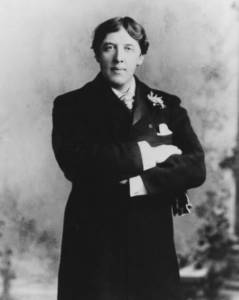
The young man amazed the teachers. He was not a genius or a natural prodigy. However, even from school, he was interested in ancient history and literature. He knew several ancient languages and showed serious zeal in comprehending everything new.
In addition, Young Oscar Wilde had good taste in clothes and possessed refined, truly English manners inherent in an aristocratic environment. Self-irony, restraint, style and a thoughtful attitude to things.
These features became the man’s calling card for many years to come. He did not change his habits even towards the end of his life.
Oscar Wilde was officially considered one of the college's most promising and promising students. Therefore, the natural result was that it was he who was recommended for admission to Oxford.
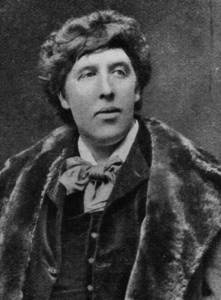
While studying at the university, he puts the finishing touches on his image and becomes what will be known in the future as a sophisticated and aristocratic man.
It was during the period of study that Oscar Wilde reconsidered his criteria for aesthetics and beauty. Stops focusing only on morality and ethics, looks at things with a broader perspective.
His teacher, John Ruskin, has a great influence on the young man. Oscar Wilde listens to his lectures with rapture.
It is under the impression of the eminent art theorist that the young man is finally formed as a person.
In the future, the poet and prose writer repeatedly wrote to his teacher and thanked him for the guidelines he had given in his youth.
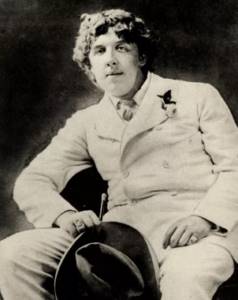
Even during his student days, O. Wilde went on a trip to Greece and Italy. Cradles of ancient civilization. He is deeply impressed by what he sees and imbued with centuries-old culture.
Under the influence of the trip, the young man creates the poem “Ravenna”. The work was highly appreciated at his native university. The future writer received the prestigious Newdigate Prize.
Oscar Wilde biography. The childhood of an unusual boy
Oscar Finngal Wilde O'Flaherty was born in the glorious city of Dublin in 1854. His date of birth was October 16. The parents of the future poet were wealthy and respected people in Irish society.
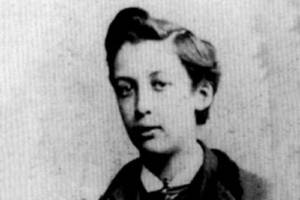
Oscar's father worked as a doctor, his specialization was ophthalmology and surgery. The boy's mother was an active woman who devoted a lot of time to the fight for the rights of the Irish. Jane Francesca also adored poetry, and managed to convey this love to her son.
William Wilde was not only an eye surgeon, but also was fond of literature, wrote historical works, and once even received a knighthood from the Queen for his work as a doctor.
There were always a lot of visitors and guests in the Wilde family house. The evenings hosted by the married couple attracted the “cream” of local society.
Oscar had an older brother, as well as a younger sister, Isola, who died of meningitis at age ten. Oscar took the loss of his sister very hard.
With his brother William, who was named after his father, Oscar was homeschooled. The brothers' home education was excellent. The boys were taught all the necessary manners. The children read a lot, then learned French and German thanks to their governesses, who were foreigners.
The children were then assigned to the Royal School of Portora. Having completed his schooling at the age of seventeen, Oscar could not boast of deep knowledge in the exact sciences, but nevertheless graduated from the institution with a medal for his talents in speed reading and literature. He also received a placement at the prestigious Irish Trinity College.
As a student, Oscar did not get along well with his classmates. One day, the college kids decided to teach the dreamy and arrogant Oscar a little lesson. They dragged the future poet up the hill. Once at the top, Oscar dusted himself off and said loudly: “What a beautiful view!”
Student Wilde loved to participate in various literary competitions. In many of them he took first place. In college, the young man became interested in Ancient Greece. Antiquity, aesthetics, ancient languages became a real passion for him.
Wilde always gravitated towards self-irony, was a skeptic and a supporter of Hellenism. Three years later, the talented guy was sent to study at Oxford. In addition to his knowledge at Oxford, Oscar acquired an English accent, losing his Irish pronunciation.
Various rumors circulated around the poet’s extraordinary personality even in his student years. Oscar himself was in no hurry to dispel them; he liked the fact that his person was surrounded by legends and myths during his lifetime.
During his studies, one of the teachers greatly influenced the young man’s worldview. John Ruskin, who sees the beauty of the world only in synthesis with goodness, had a great influence on Oscar's views.
During the same period, the young poet went on a trip to Italy and Greece. The countries made a good impression on Wilde. Returning home, the talented young man took inspiration from the trip and created the poem “Ravenna”. For this work, Oscar received one of the university's main awards.
Creation
The creative biography of Oscar Wilde began in 1878 during his years of study at Oxford University. The debut in poetry was the same poem that was created under the impression of a trip to Europe.
That same year, the young man moved to London. He attends all social events. Guests are amazed by the manners of the future writer, his refined nature, originality and keen sense of humor.
Representatives of the aristocracy are trying to imitate the young poet, adopting his habits and morals. Very soon the man had a whole crowd of fans. They strived to be like their idol in everything.
In the next few years of literary creativity, Oscar Wilde dealt only with poetry. From his pen come poems that are very popular in his homeland.
Occasionally, a young man writes essays on the topics of aesthetics and his idea of beauty. Feeling that his home is becoming crowded, the man goes to the United States of America.
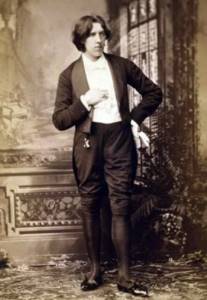
Oscar Wilde in America 1882
Here he spends only one year, living from 1882 to 1883. But in a short period of time, the young man manages to make the American public fall in love with him.
Representatives of the cultural community, as well as ordinary people, like his moral position and are impressed by the poet’s work.
At the time of his departure, Oscar Wilde had acquired a large group of followers, supporters and simply supportive fans. Natural charisma and charm allowed the young man to win the sympathy of local people without effort.
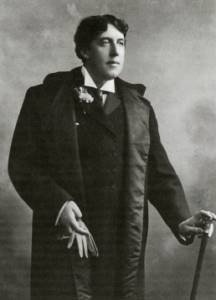
At 83, the writer returned to London. At that time, Oscar Wilde managed to start a family. Two sons were born.
The young man gradually switches to the prosaic path and begins to write fairy tales. Not so much for the sake of my own creative development, but to please my children.
In a short period of time, several collections have been published from the man’s pen. “The Happy Prince”, “The Pomegranate House”, work on which the prose writer finished in 1888-91. In his native England and Ireland, the writer gains well-deserved popularity.
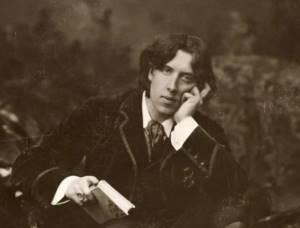
In the 90s, a man tries to join the world of journalism. He publishes articles and works for some time as an editor for a women's publication. But this period lasts only a few years.
At that moment, Oscar Wilde was already at the peak of his popularity. But the attitude towards him was extremely ambiguous. Some almost worshiped him like an idol. Others criticized and hated. Partly out of envy, partly due to creative differences.
But there was no such person who would treat the writer indifferently. At the same time, evil slander, rumors and gossip, numerous cartoons and caricatures only fueled interest in him.
The man took up serious literature when he turned 30. Oscar Wilde writes several stories. Including The Crime of Lord Arthur Savile, The Canterville Ghost, and The Sphinx Without a Riddle.
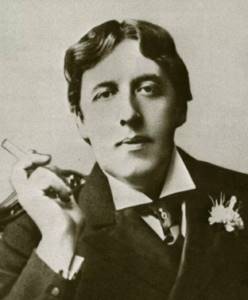
During the same period, the man begins to work on the main work of his entire creative biography - the novel The Picture of Dorian Gray. The book was published in 1990.
However, it was received very ambiguously. Opinions were divided to the contrary.
Initially, the novel was conceived as a kind of moral parable, translated into a fantastic channel. But representatives of high society, to which the work was an allusion, considered the novel immoral and offensive.
But ordinary people greeted him more than loyally and warmly. After the loud scandal that the writer’s novel provoked, Wilde tried himself in the field of drama. From his pen comes the play “Salome”.
The same fate awaits her. Due to controversial and opposing opinions, slippery religious themes, and the negative attitude of high society, they did not dare to stage the work for a long time.
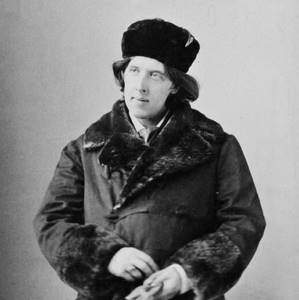
Pictured is Oscar Wilde in America
In the last years of his professional work, Oscar Wilde wrote plays in the comedy genre. Among the largest and most famous works are “Lady Windemere’s Fan”, “A Woman Not Worth Noticing”, “An Ideal Husband”.
These literary experiments are received favorably, unlike the previous ones. Directors compete to stage plays in theaters.
At this moment, Wilde finally reveals himself in the prose genre. He becomes known as a master of interesting, witty dialogues.
The work of Oscar Wilde remained relevant even after the death of the writer. His works are recognized as classics of world literature and a valuable addition to its collection.
Oscar Wilde and Alfred Douglas. Forbidden passion.
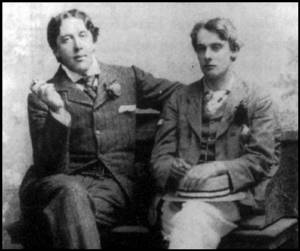
Oscar Wilde was born in Dublin. His parents were very eccentric people. The mother dreamed of having a daughter. When her second son, Oscar Fingal O'Flagherty Wills Wilde, was born, she. as was customary, she began to dress him in girl’s clothes. Wild was a tall, elegant and handsome young man. He began studying at Oxford, where his inimitable wit, graceful manners and unique style of clothing were formed. Soon after graduating from university, Wilde became a favorite of London society. He was a dear guest at any party and in all salons, and he was literally inundated with invitations. One of his contemporaries wrote: “He was, without exaggeration, the most magnificent conversationalist I have met in my life... No one could outshine him in any company. In his presence, no one else paid any attention to anyone at all.” Wilde made his living by writing reviews of books and works of art, and by lecturing in England and America. Then he began to write comedies and achieved enormous success in this field. He was extravagant, generous, scandalous and, most importantly, happy. The story of his fall sounds simply incredible today and remains to this day one of the most famous literary disasters. In his youth, Wilde was unequivocally heterosexual. Homosexuality even shocked him a little. His first love was Florrie Balkum, whom he met when he was 21 years old. He was heartbroken when she decided to marry Bram Stoker, the author of Dracula. A few days later, Wild unsuccessfully tried to court the beautiful actress Lilly Langtry, who was then married. Wilde had several other hobbies in his youth. In addition, he sometimes used the services of prostitutes. One evening he announced to his friend Robert Sherard that his name was passion, and left the house. The next morning, meeting Sherard, Wild said: “What kind of animals we are, Robert.” When Sherard said that he was very afraid of it; that Wild could have been robbed, he only replied: “They give them everything that is in their pockets at that moment.”
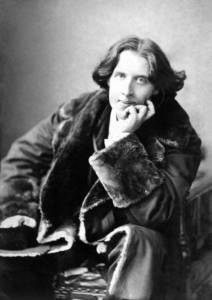
In 1881, Oscar met Constance Lloyd, a beautiful and affectionate girl, whom he began to passionately court and to whom he began to write passionate poetic letters. They were madly in love and married in 1884. We spent our honeymoon in Paris. Over the next few years, Oscar and Constance fell deeply in love with each other. They had two sons, whom they named Cyril and Vivian. Oscar adored his children, but was completely unsuited to everyday peaceful family life. It is still not clear what exactly made Wilde become homosexual. While still at Oxford, he probably contracted syphilis after another sexual relationship with a prostitute. At that time, this disease was treated with mercury. (This, in particular, caused severe discoloration of the teeth, from which Wild clearly suffered). Before Wilde proposed to Constance, he underwent a medical examination. The doctors assured him that he was completely cured of his illness. Two years later he discovered her relapses.
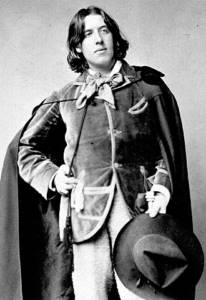
He stopped having sexual relations with Constance and began to resort to the services of males. Robert Ross, who remained devoted to Wilde until the end of his life, once boasted that he was Oscar's "first boy" when he was 17 and Wilde was 32. However, it was not until 1891 that Wilde met the 22-year-old the aristocrat Lord Alfred Douglas, known to family and friends as "Bosie" and destined to become the great love of Wilde's life. He was born October 22, 1870. From early childhood he was surrounded by the luxury of houses and tables, many nannies and servants - such was the price of belonging to the oldest Scottish family, dating back to Charlemagne and famous since the 14th century. Lady Queensbury nicknamed her youngest son Alfred for his unusual commanding disposition and for his “divine” beauty - Bosie (Bosie) from the English “bossy” - “loving to boss”, if she knew that this nickname would be with him throughout his life and even will outlive himself. At Magdalene College, young Bosie was not particularly liked, the reason being his frantic character, frequent mood swings, sometimes beyond any reasonable explanation, his desire to subjugate everyone to his will: from friends to enemies with his view of things, sometimes relating exclusively to personal matters. When the young lord turned 17, his mother Lady Queensbury began divorce proceedings from the father of her sons and from her once beloved husband, the eighth Marquess Shotto of Queensbury, for numerous adulteries. The divorce proceedings attracted the attention of all of London, because its main culprit was known as a brawler and militant atheist, for which he was expelled from the House of Lords. The complete breakdown of the family played an important role in the formation of Alfred as a psychologically damaged person. Constant quarrels between father and mother, observed by him from early childhood; assault on his brothers, and in particular on him, aroused in Bozi a feeling of resentment, which, reinforced by the suffering of his mother, turned into hatred of his father already in his youth.
Young Alfred lived in a family full of quarrels and constant litigation: be it his father's lawsuits with respectable persons in London, or his parents' divorce proceedings. Bosie lacked love and a warm home, as a result of which he immersed himself in himself, in his beauty, admiring which reached the point of open manifestation of narcissism. At Oxford, he began to write poetry that was too emotional and daring, but at the same time not distinguished by excellent style and consistent meter. It is not known what the fate of Alfred Douglas and the fate of English society at the end of the 19th century would have been like if a wonderful book had not fallen into his hands in 1891, about which the whole of London was then talking, condemning it and calling it immoral. That book was The Picture of Dorian Gray by Oscar Wilde. After reading the book 11 times, as he himself claimed, the question arose of getting to know the author of the book that had so magically bewitched him. As fate would have it, Alfred's good friend, the poet Lionel Johnson, knew Oscar Wilde, so the question of making an acquaintance became not difficult, because this was where he saw future success. As he hoped, having met Wilde, he would enter the poetic solons, where he would receive recognition as a poet. And, in the fall of 1891, when Alfred was 21 years old and Oscar Wilde was 37, the long-awaited acquaintance took place in Wilde’s house, where his wife Constance and two sons, Cyril and Vivian, lived.
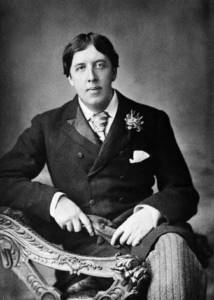
Alfred timidly admitted to Prince Paradox that he was studying at Oxford and writing poetry, which Wilde liked, then asked him to simply call him Bosie. Intoxicated by Wilde’s melodic speech, the young aristocrat left the house at 16 Tite Street greatly impressed, and Wilde, in turn, remembered the “angelic expression” of the immaculate Hellene, as if “resurrecting their ancient Greek myths.” It was love at first sight. Bosie had all the qualities that Wilde admired. They both adored luxury. Their stormy friendship began and they became inseparable.
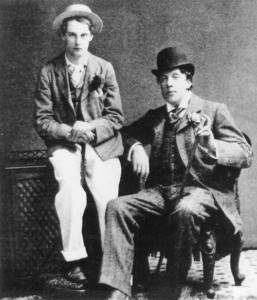
Communication began between them, which was still very rare; Wilde gave Douglas a book of his poems from 1881 and “The Picture of Dorian Gray” with a friendly inscription. Perhaps the acquaintance would have been limited to this if it had not been for the “sensitive” incident in Douglas’s life. Bosie was staying at the house of his underage friend (in England at that time the age of majority was 21; Douglas was already that age in 1892), for whom he had an open passion, but his friend’s parents found Douglas’s letters with rather “strange content” and began to blackmail him , in order to receive money from a rich family. Not knowing anyone from his inner circle who could understand and help him, he turns to Wilde, whose commitment to Uranian love was undoubtedly known to Douglas, and receives a promise of help. Having contacted a lawyer, Wilde buys the letters through intermediaries, bribes the blackmailers, saving Douglas from shame. Bosie takes the place of Wilde's beloved, displacing John Gray, a poet and a kind-hearted man, from this place, and also encroached on the most sacred thing that the Artist of the Word had - loneliness, in union with which the masterpieces of world literature were created. Inability to remain alone and take into account the preferences of others, Bosie distracted Wilde from his work and family with “empty talk”, as a result of which Wilde was never able to finish his two tragedies “The Florentine Tragedy” and “The Holy Harlot”, but most importantly, he could not carry out time with the children, whom he undoubtedly loved. But the love for Bosie was strongest; being with him, it was as if he was in the very holiest of Art, clearly risking respectability, family, and creativity. Bosie influenced Wilde more than Wilde influenced him, alas, but then only their friends knew this, while society and Douglas's relatives blamed Wilde for corrupting a beautiful and innocent young man. In reality, Wilde only introduced Douglas to a circle of people, communicating with whom it was possible to easily find a suitable companion for the night, which is what Bosie did. In their relationship there was a lot of passion, declarations of love, as well as tears and partings. They complemented each other and destroyed each other with equal success. Their friendship caused disgust and ridicule wherever they appeared, be it London, Paris, Florence or Algeria. And at the same time, their love, and an inexplicable, fatal passion, aroused jealousy among Wilde’s friends, especially Robert Ross, a young writer who first seduced the not yet experienced Wilde in 1886 (at that time Ross was 17, and Wilde was 32 ). This jealousy accumulated for a long time and was sometimes expressed in quarrels with Bozi, whom it took nothing to piss off. And indeed, during the three years of Wilde’s relationship with Bosie, right up to the trial, Robert Ross, aka Robbie, played the secondary role of a friend, the first place belonged to Douglas. During Wilde and Bosie's trip to Algeria in January 1895, 3 months before the trial, they met the young and aspiring French writer Andre Gide (Nobel Prize Winner in Literature 1949) in Biskra. Andre Gide considered Douglas not as handsome as Wilde always described him, but he accurately noticed the enormous influence Bosie had on Oscar: from choosing dishes in a restaurant to directly telling him what to do. In his autobiography, Gide wrote: “Douglas’s personality was stronger and more pronounced than Wilde’s; yes, Douglas actually had a more developed individuality, manifested in terrible egoism; he was guided by some kind of fatal predestination; at moments it seemed that he was not responsible for his actions; he never opposed his nature and did not allow anything or anyone to oppose it. To tell the truth, I was extremely interested in Bosie, but he really was “terrible”, and I think he is to blame for all of Wilde’s troubles. Next to him, Wilde seemed soft, indecisive and weak-willed. Douglas, like a spoiled child, tried to break his best toy, he was not satisfied with anything and something pushed him further and further.” There were all sorts of rumors and gossip around the name of Wilde and Bosie, but everything probably would have ended quietly if Bosie’s father, the eighth Marquess of Queensberry, had not intervened in the matter. His son's sexual predilections, of which he was well aware, infuriated him. The culmination of his malice was the famous postcard he sent to the club of which Wilde was a member. There were only three words written on the card: 'To Oscar Wilde, homosexual.' Wilde was furious, and his anger pushed him to take a rash act. He sued Queensberry, accusing him of libel. To the great surprise of the entire court, however, it turned out that Queensberry had prepared superbly for the trial. He hired a team of private detectives and paid informants and with their help tracked down many of the young men Wilde had met through Taylor. When it became clear that these young men could speak in court at any time, the prosecutor refused to further pursue the case, and the Marquis was completely acquitted. Oscar's friends begged him to leave England urgently, but he refused to do so. Less than a month had passed before Wild was arrested. Now Queensberry sued him, presenting evidence of his sexual perversion. Pimp Taylor was also arrested, but refused to testify against Oscar Wilde. During the second trial, one of the most sensational in English history, Wilde was full of self-control and spoke, as always, very witty. This turned out to be not enough. One after another, boys and young men appeared in court and gave such testimony, for example: “Wilde asked me to imagine that I was a woman and he was my lover... Usually I sat on his lap, and he caressed me like if I were a girl…” Wilde was always the active side. He delivered his famous speech, “The Love That Dare Not Say Its Name” (a line from one of Bosie’s poems), which was so heartfelt that it was met with applause. The case was postponed until the third trial. Once free, Wild again refused to flee the country. The third trial ended tragically for Wild: he was sentenced to two years of hard labor, which was the maximum punishment under the legislation in force at that time. Prison conditions in England at that time were difficult. The horrors of prison took a toll on Wilde's mental health. In prison, he disowned Bozi, accusing him of being the one who led to his downfall. When Wilde was in prison, Bosie did not write him a single letter. It later became clear that the letters could have been read by the warden, who would undoubtedly have handed them over to the appropriate authorities, which would have harmed Wilde even more. Bosie received information about his friend’s condition from Wilde’s so-called “close associates”: Robert Ross, More Adey, Reginald Turner, but after the trial they treated Bosie very coldly and saw him as the direct culprit in Oscar’s trouble; the information was scanty, and Douglas never received any “warm words” from Wilde, with the exception of a ban on dedicating his first book of poetry to Wilde (published in 1896) and not writing “defensive” articles. After his release in May 1897, Wild, broken both morally and physically, did not return to England. Under the name S:)styan Melmoth, he lived first in France and then moved to Italy. Constance Wilde, on the one hand, and Bosie's family and his many friends, on the other hand, did everything to ensure that Bosie and Wilde never met again, but there were still meetings. At most of them, Wilde took a moment to ask for money. When Oscar Wilde lived in France, he once honestly tried to correct himself and take the right path. The poet Ernest Dawson took him with him to a brothel in the hope that he would develop "healthier tastes and preferences." When Wilde went outside, he only remarked: “The first and last time in ten years. Looks like cold lamb." He did, however, ask Dawson to "tell the story in England" as he believed it would "restore his reputation". After the final break in December, Douglas began to lead a riotous life, having lovers in England, France and Algeria, with some of them he made short trips around Europe in order to be unnoticed by the strict family gaze on which, at that time, he was still financially dependent. At the beginning of 1900, the Marquess of Queensbury died, bequeathing a decent fortune to his sons. There were rumors, the author of which was Douglas himself, that his father left him, Bosie, more than 20,000 pounds. Wilde reacted to this immediately, believing that Alfred “must compensate” with money for his bankruptcy and collapse. He wrote letters to Douglas that talked only about money, infuriating Bosie with the contrast of relationships, because Oscar had previously written him letters full of love and beauty. Because of such commercialism, Bosie began to have a disgust for Wilde, as if his own words had come true, that he wrote to Wilde in a letter dated October 16, 1894 (on Wilde’s 40th birthday): “When you are not on a pedestal, you are completely uninteresting.” But nevertheless, Bosie did not forget Wilde, he always showed interest in his person, learned from Ross the state of Wilde’s health, which was constantly deteriorating, but did not feel any particular desire to meet him. Oscar Wilde died in exile in France on November 30, 1900, from acute meningitis caused by an ear infection. Shortly before his death, he said about himself: “I will not survive the 19th century. The British will not tolerate my continued presence." He was buried in Paris at the Bagno cemetery. About 10 years later, he was reburied in the Père Lachaise cemetery, and a winged sphinx made of stone by Jacob Epstein was installed on his grave. Alfred Douglas responded to the death of Oscar Wilde with several sonnets.
In the 90s of the 19th century, Bosi believed that to be homosexual meant to be chosen by Art itself and to belong to the era of the ancient Greeks. According to his own conclusions, 25% of all the world's heroes of history and art were homosexuals, moreover, he stated that: “the smartest men are homosexuals, others cannot compare with them.” By 1901, Lord Alfred Douglas was spoken of with contempt as the lover and muse of Oscar Wilde. Recognized literary magazines refused to publish Bosi's poems, as a result of which by 1905 he stopped writing them regularly; from now until 1924, poetry became a rare hobby for him. With the advent of the new twentieth century, in 1901, Bosie’s attitude towards everything that had previously been the most important value changed: love. He begins to avoid turbulent companies where he could easily meet young people, and begins to speak negatively about homosexuality, calling it sodomy and perversion. If his father were alive, he would be proud of his son. At the end of 1901, he met the young and beautiful poetess Olive Eleanor Constance, daughter and heiress of Colonel Frederick Hamboldon Constance. The following year they fled England together from Olive's father, who hated Douglas and, like everyone else, knew about his past. Olive loved Alfred (she dedicated several poems to him, one of them “Hyacinth” seemed to repeat Wilde’s love letters to Bosie) and was expecting a child from him, which she did not hide from either society or Alfred, as a result, Douglas proposed her hand in marriage and they got married on March 4, 1902. And on November 17, they had a son, Raymond (full name - Raymond Wilfrid Sholto), a very fragile boy from birth who aroused the fears of doctors, as it later became known not in vain: after a divorce from his wife, long persecution for relations with Wilde, 6 months of hard labor for an article accusing Churchill of conspiring to assassinate a politician, and other events of his busy life, Douglas’s biggest shock would be his son’s diagnosis: schizophrenia. In 1940, Alfred published a book called Oscar Wilde: A Summing Up. Like all of Douglas’s books, this book has not been translated into Russian, so it can only be judged by reviews and opinions of art critics on the Internet, from which it becomes obvious that “Oscar Wilde. Summing up" became Douglas's most personal book, where he, without fear, admits his love for Oscar Wilde, calling him the love of his life. Remembering every day spent with Wilde on the pages of his book, the elderly Douglas relives his life with happiness and peace in his heart and soul, to which he had been going for so long. The appearance of this book was a reflection of Douglas's spiritual state: a lonely man whose only courage was to live in the memories of the past. Alfred Douglas. During Wilde's lifetime, everyone spoke of Douglas as a terrible shadow of the Prince of Paradox, exerting a corrupting influence on him. After Wilde's death in 1900, everything became exactly the opposite. Now, Wilde’s shadow haunted him for the rest of his life, not allowing him a peaceful existence, both in the family and in society. And only the prison dotted the i's. Mystical fatalism - this is how Douglas's life can be called. And now, almost sixty years after his death, I continue to talk about him as Bosie, Wilde’s fatal lover, but not as a poet. He knew during his lifetime that he went down in history precisely as the shadow of Oscar Wilde, whose trial in 1895 broke the life of not only the writer, but also the young English lord. PS: The brilliant Stephen Fry and the handsome Jude Law played in the wonderful film “Wilde”.
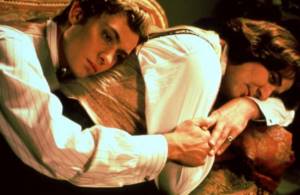
Personal life
Quite little is known about the love affairs of the writers. We can say for sure that in his younger years he did not know a lack of attention and was known as a noble rake. He was a regular at brothels and used the services of easily accessible women.
Wilde's first love was Florrie Balkum. Then, he developed an interest in actress Lilly Langtry.
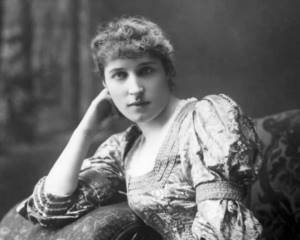
Lilly Langtry
The young man's life changed radically when he met Constance Lloyd, the daughter of a prominent and famous lawyer and lawyer.
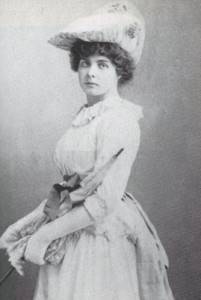
Constance Lloyd
In 1884, the couple was officially married. Two children were born from the union. Sons Cyril (1885) and Vivian (1886).
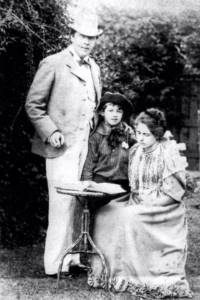
Oscar Wilde with his wife Constance Lloyd and son Vivian
After a few years, the couple began to grow cold towards each other. What was the reason for this is not known exactly.
Relationships with men
At the dawn of the 90s, Oscar Wilde begins to develop a love interest in men, revealing the innermost traits of his personality that he had hidden for a long time.
The writer's first partner was his secretary, Robert Ross. The fateful moment in Oscar Wilde’s life was his acquaintance with the aristocrat, the Marquis Alfred Douglas.
The meeting took place in 1891. Very soon the couple turned from friends to lovers.
1 of 4
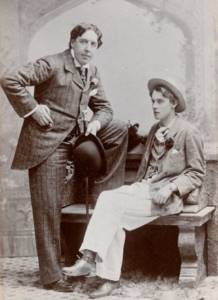
Oscar Wilde with Alfred Douglas
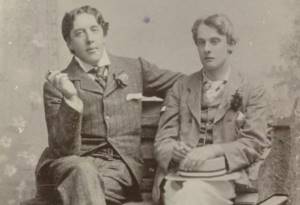
Oscar Wilde with Alfred Douglas
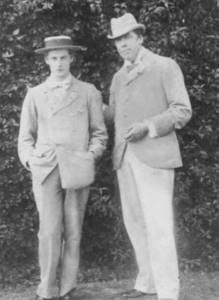
Oscar Wilde and Bosie Douglas
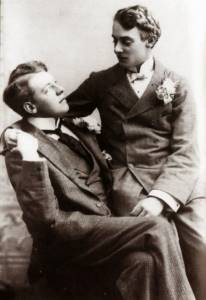
Oscar Wilde with Alfred Douglas
The writer's chosen one was a rather capricious young man. Wilde constantly sought to please his partner. Very soon the couple ceased to be ashamed of their unusual status for that time.
Wilde and Douglas appeared at social events. But it was a serious mistake. Almost immediately, information about the homosexual relationship between the writer and Bosie (as Alfred’s closest friends called him) became known to Douglas’s father. He was furious and firmly decided to kill the writer from the world.
Oscar Wilde: The Story of a Brilliant Disaster
The 2021 film The Happy Prince, starring Rupert Everett, chronicles Oscar Wilde's final years, a chapter of his life that is usually ignored by biopics.
However, the trial of the writer turned out to be not only a personal disaster, but also became an occasion to declare love. Why is Wilde often called “the number one gay” in modern history, and why is his fate a “brilliant catastrophe”?
Dandy and esthete
Playwright, poet and novelist, Oscar Wilde is one of the most famous writers born in Ireland. He grew up as a talented child in an Anglo-Irish family, learning to speak French and German in early childhood from his own nannies.
Wilde studied at Dublin University and then Oxford, graduating with honors, before settling in London.
At Trinity College Oxford, Wilde had a reputation not only as an aesthete and a dandy (giving occasion to discuss the furnishings of his rooms and caustic witticisms), but also as a serious scholar of classical literature and a talented poet.
Having settled in London, he made a splash in the fashion world. According to contemporaries, the suit in which the young man attracted everyone's attention consisted of “a short velvet jacket trimmed with braid, a thin silk shirt with a wide turn-down collar, a soft green tie, knee-length satin pants, black stockings and patent leather shoes with buckles.” , as well as a beret, sometimes a loose cloak and a lily in his hand.”
Wilde was an early proponent of “aestheticism,” a philosophical and artistic movement that emphasized the beauty and aesthetic perfection of things. He wrote essays on “aestheticism” and went on lecture tours throughout the United States and Canada.
His wit and lyrics brought him fame, and his colorful suit became something of a trademark (with the famous green carnation in his buttonhole). He did not hide his love for the attention that he eagerly enjoyed. (“Love for yourself is a romance that lasts a lifetime,” is his typical “paradox”).
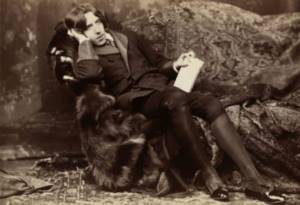
Golden years
After a year spent in America, Wilde returned to London in excellent spirits. And he immediately went to Paris, where he met prominent representatives of French literature (Verlaine, Zola, Hugo, Mallarmé), easily winning their sympathy.
At 29, he shot Constance Lloyd and married. They had two sons (Cyril and Vivian), for whom Wilde writes fairy tales. A little later, he published two collections: “The Happy Prince” (1888) and “The Pomegranate House.”
Wilde plunges into creativity. He makes a living from journalism, working as the editor of Women's World. Bernard Shaw spoke highly of the articles of the brilliant author. In 1890, Wilde published his first and only novel, Dorian Gray.
The plot, as you know, is built around the life of a young man who sells his soul in exchange for an immoral life and eternal youth. Instead of aging himself, his portrait grows old, which he hides and on which traces of a vicious life appear.
The publication of the novel marked the beginning of a five-year flowering of Wilde's talent and world fame. He moves in elite London circles and becomes a legend during his lifetime. Some historians call him the first true “celebrity” of modern times.
The novel was followed by the play Salome (1891), about the daughter of King Solomon, who ordered the beheading of John the Baptist. The play was staged in France and brought the author fame as a playwright, but could not be performed in England due to laws prohibiting biblical stories in the theater.
Among Wilde's most famous plays are Lady Windermere's Fan (1892), The Importance of Being Earnest (1893), and An Ideal Husband (1894). All of them were "hits" of the Victorian era and are often performed today. In comedies, the art of witty dialogue was revealed in all its glory. Newspapers called the author “the best modern playwright”
The plays satirized the mores of Victorian society, but at the same time forced viewers to think about social problems.
In 1891, Wilde wrote a treatise, The Soul of Man under Socialism, in which he rejected the idea of marriage, family and private property.
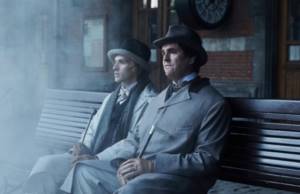
Sexuality: “I can resist everything except temptation”
Soon after his marriage in 1894, Wilde had to begin living a double life, keeping his contacts with a circle of young gay men secret from his wife and her respectable friends.
In addition to romantic relationships with women in his early years, he was attracted to men - at a time when homosexuality was taboo in England (an “unnatural vice”).
It is believed that in the United States, Wilde already had a sexual relationship with the Canadian journalist and art critic Robert Ross, who met the writer at the age of 17. According to one of his friends, Ross, who had no doubt about his homosexuality, decided to seduce the extravagant Wilde, with whom he remained friends for the rest of his life.
However, relations with young people at home led Wilde to scandal and one of the most high-profile trials in Victorian England.
In 1891, Wilde met Lord Alfred Douglas, son of the Marquess of Queensberry. His friends called him Bosie, he was 16 years younger than Wilde, he was looking for this acquaintance and knew how to win him over. Soon Oscar, who often lived beyond his means, could not refuse anything to Bosie, who was constantly in need of money for his whims.
With the appearance of this “golden-haired boy,” Wilde switches to the services of male prostitutes. In 1892, Bosie, who became a victim of blackmail (his love letter to another friend was stolen), turned to Wilde - and he gave money to pay off the extortionists.
Periodic disappearances and exorbitant expenses worried the writer’s wife, but she did not question her husband’s explanations that he needed all this in order to write. Douglas was not going to hide his connection with the “brilliant Oscar” and from time to time demanded not only dates, but also meetings in plain sight. As a result, the couple found themselves targeted by London blackmailers.
Their relationship became increasingly careless until rumors reached Douglas's father.
In 1893, Bosie dropped out of Oxford and again faced threats to make his sexuality public. The Marquis of Queensberry, through a lawyer, gives money to blackmailers to hush up the scandal. But he decides to end his son’s indecent relationships not only with Wilde, but also with other men. First, the father leaves his son without an annual allowance, and then threatens to shoot Wilde.
He leaves a note in a London club calling him a “sodomite.”
Friends advise Oscar to ignore the insult and leave the country for a while. But Alfred, who hates his father and was looking for a reason to prevent him from managing the family’s money, insists that Wilde sue for libel.
The next day, Wilde accuses the Marquis of slander and he is arrested. In response, Queensberry, through her lawyers, presents witnesses to Wilde's obscene relationships and a selection of quotes from his works. Confident in the power of his eloquence, the writer decides to defend himself and speak in court.
“The Love That Dare Not Say Its Name”
On April 3, 1895, the hearing of the high-profile case began. There were no empty seats in the hall, but due to the “immorality” of the circumstances in question, only men were present. Wilde persistently denied the sexual nature of his relationship with Douglas.
At the trial, he entertained the gallery with his typical wit. Prosecutor Edward Carson asked: “Might not the hero-artist’s love for Dorian Gray lead the ordinary man to believe that the artist was attracted to him in some way?” To which Wilde replied: “The thoughts of ordinary people are unknown to me.”
“Has it ever happened that you yourself madly admired a young man?” Carson insisted. Wilde replied: “Crazy - never. I prefer love, it’s a higher feeling.” Trying to identify hints of “unnatural” relationships in the works, Carson read a fragment of one of the stories and asked: “I assume you wrote this too?” “No, no, Mr. Carson,” Wilde replied. “These lines belong to Shakespeare” (the audience laughed).
However, evidence of Wilde’s “sodomy” grew more and more. When the Marquess of Queensberry's lawyers said they had a number of male prostitutes willing to appear in court to give evidence, the writer was forced to drop the case.
Bosie's father was found not guilty of libel. But based on what was heard during the trial, Wilde was arrested and charged with “gross indecency” and “sodomy.” Any sexual relationship between men was illegal.
The writer appeared in court again and was found guilty. He received two years of hard labor and, starting in 1895, served his sentence in several prisons. This was the maximum possible term under this article.
In handing down the sentence, the judge said: “In my opinion, this sentence is too lenient for everything this man has done.” Victorian London immediately “forgot” the writer’s name. Most of his friends turned their backs on him.
Wilde's life coincided with the period of cultural development when the idea of the line between heterosexuality and homosexuality began to take shape.
Wilde played a revolutionary role in defining the boundaries of homosexual culture. The trial itself is perceived today as a striking episode that made it possible to publicly declare the existence of same-sex love as a spiritual and cultural phenomenon.
The fate of Oscar Wilde can be called a “brilliant catastrophe”, after which public opinion and private judgments could no longer be the same.
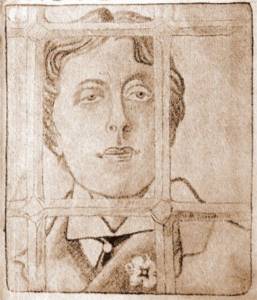
"From the depth"
In prison, Wilde wrote a confession in the form of a letter to Bosie, which he called “Epistle: In Prison and Chains.”
The letter was written towards the end of his prison term in 1897. The new warden, who was more friendly, allowed this text to be written in order to distract the prisoner from difficult experiences. Each page was removed after it was written. Sending a letter from prison was also prohibited. Wilde received his text only before his release in May 1897.
He gave the manuscript to the journalist Robert Ross (a friend and former lover), who published it in 1905, five years after the author's death, calling it " De Profundis " ("From the Depths"; thus begins Psalm 129).
After his release from Reading prison, Wilde traveled to Europe. The wife made it clear that she would not be able to resume family life. The shame of the trial was too great. The sons received the surname of his wife's brother, Holland, to avoid the stigma of their father's name.
In Europe, Wilde traveled between France and Italy, where he tried to renew his relationship with Bosie. But they were approaching the end - and an increasingly poor and lost Wilde ended up in Paris.
He died after developing meningitis (from an injury received in prison) in November 1900 at the age of 46. The writer's grave is located in the Père Lachaise cemetery in Paris.
"Brilliant Disaster"
During the trial, Oscar Wilde became the most famous person accused of homosexuality. The entire world press wrote about the trial.
Although Wilde tried to distance himself from the accusations and argued that all relationships with men were platonic, he did not abandon the idea of same-sex love.
To the prosecution’s question: what is “love that dare not speak its name?”, he answered with a beautiful formula:
“The love that dare not speak its name - in our century - is the same love of the elder for the younger that was between David and Jonathan, the same as in Plato, which formed the basis of his philosophy, the same that you you will find in the sonnets of Michelangelo and Shakespeare.
It is that deep spiritual affection that is as pure as it is perfect.” “This is a beautiful and noblest form of feeling, in which there is nothing unnatural.”
Source: Gay Star News
If you find an error, please select a piece of text and press Ctrl+Enter.
Continuing the topic
Who I am: from gender and role to queer. Part 1 (theory)
What is activism and what does it mean?
“Under this regime we will not be allowed to live a normal life”: LGBT people at protests in Russia
Postscript: I'm gay
Don’t miss the most interesting articles from “Guys PLUS” - subscribe to our pages on social networks!
Facebook | VKontakte | Telegram | Twitter | Help financially
Yandex.ZEN | Youtube
Death of a Writer
In 1900, Wilde, weakened by prison conditions, fell ill with an ear infection. The pathology progressed rapidly and very soon led to inflammation of the brain.
The famous writer died on November 30 of the same year due to complications, having never recovered from the illness. The last refuge of the literary genius was the local cemetery of Bagnier, which is located in Paris.
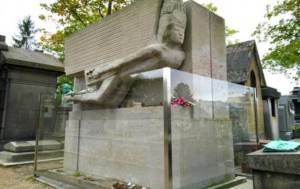
Oscar Wilde's grave at Banier Cemetery, Paris
Bibliography
Plays
- Faith, or Nihilists (1880)
- Duchess of Padua (1883)
- Salome (1891, first performed in 1896 in Paris)
- Lady Windermere's Fan (1892)
- A Woman Not Worth Noticing (1893)
- An Ideal Husband (1895)
- The Importance of Being Earnest (c. 1895)
- The Holy Harlot, or the Woman Covered with Jewels (fragments, published 1908)
- Florentine tragedy (fragments, published 1907)
Novels
- The Portrait of Dorian Gray (1890)
Novels and stories
- The Canterville Ghost
- The Crime of Lord Arthur Savile
- Portrait of Mr. W.G.
- Millionaire sitter
- Sphinx without a riddle
Fairy tales
From the collection “The Happy Prince and Other Tales” (1888):
- Happy Prince
- Nightingale and rose
- The egoistic giant
- Devoted Friend
- Wonderful rocket
From the collection “The Pomegranate House” (1891):
- Young King
- Infanta's birthday
- Fisherman and his Soul
- Star boy
- Poems
- Ravenna (1878)
- Garden of Eros (publ. 1881)
- Itis motif (published 1881)
- Charmides (publ. 1881)
- Panthea (publ. 1881)
- Humanitad (publ. 1881)
- Sphinx (1894)
- The Ballad of Reading Gaol (1898)
- Poems in prose (translated by F. Sologub)
- Fan (The Disciple)
- The Doer of Good
- The Master
- The Teacher of Wisdom
- The Artist
- The House of Judgment
Oscar Wilde biography briefly. Oscar Wilde short biography
The great esthete Oscar Wilde. The remarkable British writer and playwright of the late Victorian era, Oscar Wilde, firmly inscribed his name in the galaxy of world literary figures. A number of his witty novels and tragedies have become pearls of the world literary heritage. Oscar made his parents happy with his birth in October 1854. The second son in the family of an ophthalmologist and poetess was born on the 16th in the capital of Ireland, Dublin. From his mother, Oscar inherited a sense of excellent taste, a love of literature and a talent for writing. Having received a good education at home, the boy at the age of 10 begins his studies at the Royal School of Portora. After Wilde graduated from school with honors, the young man entered Trinity College in the Irish capital. It was here, after taking a course on aesthetics and falling under the influence of a sophisticated professor who was his tutor, that Wilde began to develop the behavior of an esthete, which was largely passed on to the characters in his books. After 3 years, the young man becomes a student at Oxford University. During his student period, Oscar Wilde's attitude to culture was formed. The tour to Greece and Italy especially influenced the future writer. The grace and art of these states greatly impressed Wilde. He writes a poem called "Ravenna", for which he won the Newdigate Prize. After Oxford, Wilde remained to live in the English capital, where he very quickly became a participant in various social events, gaining fame as a witty interlocutor and esthete. The aspiring author turns into a trendsetter, captivating many social beauties with his beauty. Wilde's elegant clothes were always complemented by a flower on the buttonhole of his jacket. The public immediately notices Wilde's collection of poems published in 1881. Having become a fan of the aesthetic movement, the next year Oscar left for the USA, where he traveled around the country giving lectures on art and aesthetics, attracting the attention of reporters with his witty phrases. The halls in which he lectured were full of people who came to see and listen to this “British narcissist”. Returning to the Old World, Wilde heads to Paris. Here he meets famous literary figures: Hugo, Zola, Verlaine. At the age of 29, Oscar Wilde returns to Foggy Albion and finds his personal happiness. He marries Constance Lloyd, the former daughter of a lawyer from Ireland. Soon the couple has 2 sons. The boys were named Cyril and Vivian. Their father makes a living by writing various materials for printed publications, plays for London theater productions, and lecturing. After the birth of his sons, Wilde begins to write fairy tales. The most famous of them were “The Happy Prince”, “Star Boy”, “Pomegranate House”. The writer created in 1887 “The Crime of Lord Arthur Seville”, “The Sphinx without a Riddle”, “The Canterville Ghost”, “The Millionaire Model”. They were included in Wilde's debut collection. Two years later, the concepts of Wilde the esthete are reflected in the works “The Truth of Masks”, “Pen, Pencil and Poison”, “The Decline of the Art of Lying”. The crowning achievement of the writer’s work was The Picture of Dorian Gray, which made him famous. It was published in 1891. The preface to the book became a kind of declaration of aestheticism. At the same time, the doctrine of aestheticism, outlined by the author in the series of publications “Plans”, saw the light of day. Wilde then wrote a number of realistic works. Over the next 4 years, the writer was at the zenith of his fame. But meeting the young Marquis Douglas derails the playwright's life. Wilde's reverent feelings and platonic love for Douglas become the reason for the young man's father filing a lawsuit against Wilde. The court remained adamant about any merits of the writer and in 1895 sentenced Oscar Wilde to two years in prison for sodomy. Many fans, and even his closest friends, began to turn away from him. While Wilde was in prison, two sad events happened. Firstly, the writer’s mother dies, and secondly, he is left completely alone: his wife and children leave England and change their last name. Having received freedom, Wilde moves to France, where he begins to eke out a miserable existence. The last work of the great playwright is the poem “The Ballad of Reading Gaol”, composed a year after his release. The great esthete left this world alone, forgotten and abandoned by everyone. The sad event occurred on the last day of the last month of autumn 1900. Initially, the body was interred in an ordinary Parisian churchyard, but after 10 years, Wilde’s remains were reburied in the prestigious Père Lachaise cemetery. The writer's gravestone is crowned with a winged stone sphinx.
Quotes
- The only way to get rid of temptation is to give in to it.
- A cynic is a person who knows the price of everything and values nothing.
- We're all in the gutter, but some of us are looking at the stars.
- Experience is the word people use to describe their mistakes.
- Men can be analyzed, women can only be adored.
- There are only two real tragedies in life: one is when you don’t get what you want, and the second is when you get it.
- To regain youth, you just have to repeat its follies.
- Friendship between a man and a woman is impossible. Passion, enmity, adoration, love - but not friendship...
- You should never trust a woman who tells you her age. A woman capable of this is capable of anything.
- The tragedy of old age is not that a person grows old, but that he remains young at heart.





